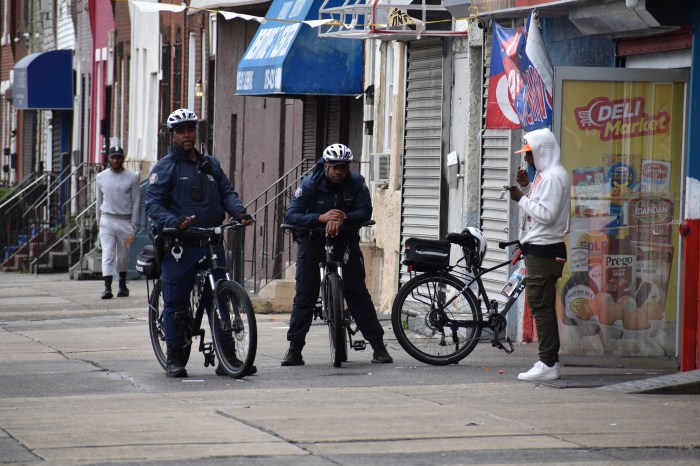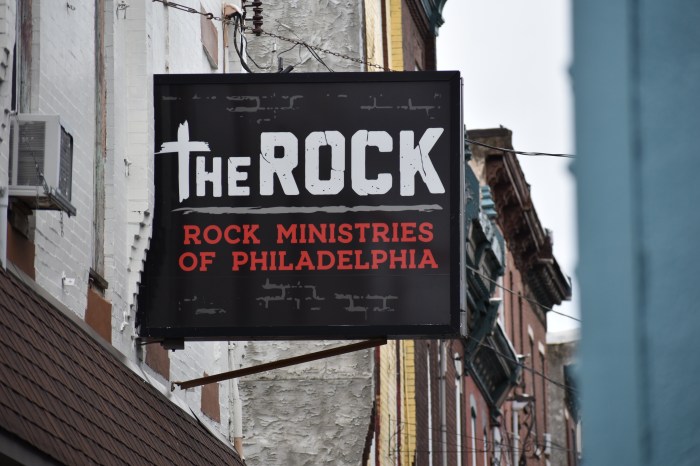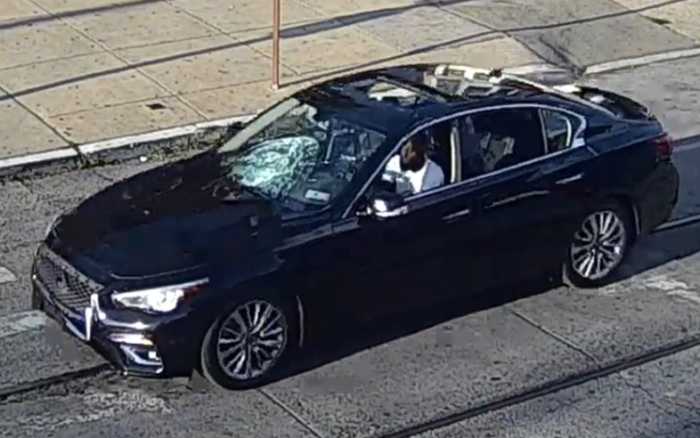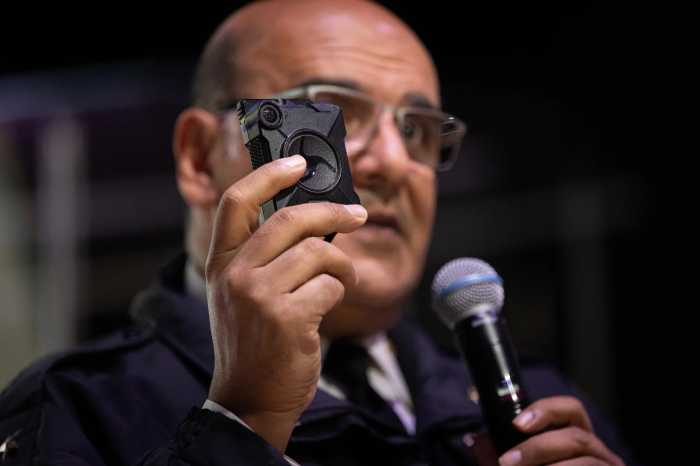Barricades remained on the sidewalks of Kensington Avenue as pedestrians sidestepped puddles in the street Wednesday, a week after Mayor Cherelle Parker’s administration disbanded a homeless encampment.
Television cameras and reporters, who arrived early May 8 to cover the sweep, were gone. No tents were visible in the area, which stretched just south of the Market-Frankford Line’s Allegheny Station. Police officers on bicycles rode up and down the commercial corridor.
“It finally looks better. Before it was really crazy,” said Iyasari Alcala, who works at Grocery and Restaurant Inc., a corner store at Kensington and Lippincott Street. “I don’t know how long it is going to keep clean.”
Antionette Mears, 61, who lives on nearby G Street, said some of the people who were living in the encampment have dispersed to nearby streets. She understands the reasoning behind the sweep but wants the Parker administration to adopt a tougher approach.
“I used to feel empathy for them, but I don’t anymore because now you’re interrupting the quality of my life, my family’s life,” said Mears, who is a board member for the Kensington Independent Civic Association.
“These people are still not suffering consequences for their actions,” she added. “They’re still buying drugs. They’re still getting high in the street, and kids are still seeing it. Drug dealers are suffering no consequences. They’re dealing in front of cops.”
Mears, a lifelong Kensington resident, is approaching 21 years sober. She told Metro that she was “part of the crack epidemic” and that she suffered consequences as a result.
No one was arrested during the sweep, which Parker’s office has referred to as an “encampment resolution.” City officials said 55 people went into shelter; four were placed into addiction programs; and nearly 90 were treated for wounds on May 8 and in the weeks leading up to the operation. Eviction notices were posted along the avenue in early April.

City Councilmember Quetcy Lozada, whose district includes parts of Kensington, said she has received thankful messages from business owners on the avenue and complaints from nearby residents and property owners who have seen newly-formed groups outside their windows.
“I hear their frustration, I understand their frustration, and I encourage them to continue to be vocal,” Lozada told Metro in a statement Wednesday. “This is an ongoing process that will take time.”
Lozada went on to say that she believes there will be “positive, visible change in our communities in the coming months.”
Additional law enforcement resources are being dedicated to make sure the encampment is not reestablished on Kensington Avenue or anywhere else, city officials said in a joint statement from the PPD and Managing Director’s Office.
Nur Hussain, owner of SS Plus Variety, said he has seen officers removing people from the sidewalk. Traffic has been slow at his store, which opened in 2007 and sells clothes, accessories and body oils, and he thinks it will take time for perceptions to change.
“Trying to keep it clean is a good thing because it’s still scary for customers,” he said.
Anyone who sees people setting up tents should call 911, and residents can call the homeless outreach hotline at 215-232-1984 if they encounter someone who is unsheltered, the mayor’s office said.
Multiple outlets, including the Kensington Voice, have reported that officers and street cleaners effectively booted unhoused people off of the blocks May 8 before social and outreach workers arrived. According to the Inquirer, the day began with a tense exchange between advocates and police.
The Citizens Police Oversight Commission said last week that it will conduct an “after action review” of the encampment resolution, and the organization encouraged people to report misconduct to 215-685-0891 or cpoc@phila.gov.
Buddy Osborn, senior pastor and founder of the Rock Ministries, said he would not have had his church partner with the Parker administration if people were going to be criminalized solely for using drugs.

Dozens of Rock Ministries chaplains – trained to assess people living on the street and refer them to services – participated in the encampment clearing.
“I think it was a great step,” Osborn, who grew up in Kensington, said. “Because now the business owners can do business. You don’t smell the urine or the feces. Just for health reasons, it’s good.”
“Just to feel that, man, one day the stores will be open,” he added. “One day, that we can see the corridor reopen. One day, we can see families shopping on the avenue for food and clothing. Oh man, I yearn to see that.”
Parker’s team has stressed that last week’s encampment resolution was not part of Police Commissioner Kevin Bethel’s broader strategy for Kensington, which was laid out in a 100-day report released in April. Rather, officials said, the operation followed the same procedures as a long list of prior encampment clearings in recent years – many of which have occurred in Kensington.
The five-stage Kensington Community Revival initiative begins with a warning period, when drug users and dealers will be offered opportunities and informed of upcoming law enforcement action, according to the plan. An enforcement phase follows.
Osborn believes the effort, if successful, could serve as a “national model.”
“I believe that this is the beginning of something that everyone’s going to applaud when everything is said and done,” he told Metro. “Everyone’s gonna win from this, but we got to stay focused.”




























